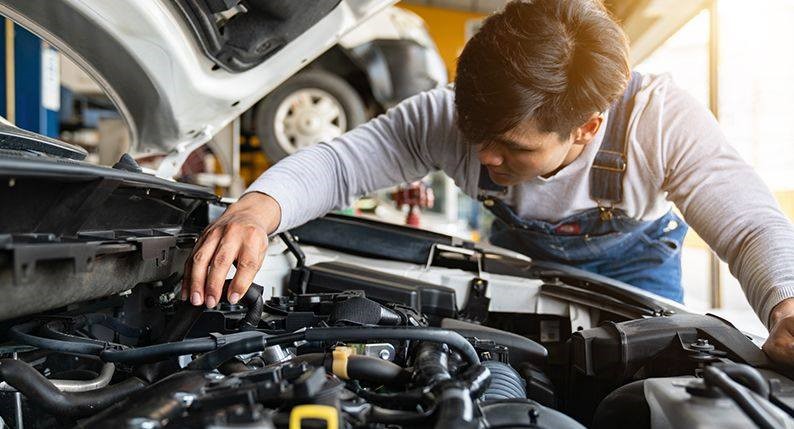Featured
Table of Contents
As the discussion around climate adjustment and environmental sustainability increases, several regional vehicle fixing shops are tipping up to implement techniques that significantly reduce their carbon impact. By embracing environment-friendly policies, these businesses not only add to a healthier earth yet also draw in a growing base of ecologically conscious clients. Here's a more detailed look at the different ecological techniques neighborhood vehicle fixing services are utilizing to promote sustainability and minimize their effect on the setting.
Furthermore, shops are increasingly mindful of dangerous materials, consisting of oil, coolant, and batteries. Partnering with licensed dangerous waste disposal services makes sure that these products are dealt with and gotten rid of safely, safeguarding regional rivers and environments from contamination. By focusing on responsible waste disposal, car service center can considerably minimize their environmental footprint.
Moreover, customers are becoming increasingly aware of the ecological consequences of their options. By marketing their use of green items, auto service center can bring in ecologically mindful clients, improving their reputation and building customer loyalty.
Some shops are even exploring renewable power sources, such as solar panels, to power their procedures. By creating their very own tidy energy, these businesses can substantially reduce their dependence on fossil gas, adding to a much more sustainable power landscape.
![]()
Additionally, advanced auto wash systems that recycle water can significantly minimize water usage throughout vehicle cleansing. These actions not only help preserve a priceless source yet likewise lower functional expenses for the store.
By educating customers regarding green practices, stores can foster a society of sustainability that prolongs beyond their doors. Getting involved in local events, funding area clean-ups, or partnering with environmental organizations can also improve the shop's exposure and track record as a responsible organization.
1. Accountable Waste Disposal and Recycling Programs.
Efficient waste management is vital for lowering the environmental influence of vehicle service center. Several local services have established durable recycling programs to manage materials such as steel, plastics, and paper. These programs typically consist of designated containers for various recyclable products, making it much easier for workers to arrange waste properly.Furthermore, shops are increasingly mindful of dangerous materials, consisting of oil, coolant, and batteries. Partnering with licensed dangerous waste disposal services makes sure that these products are dealt with and gotten rid of safely, safeguarding regional rivers and environments from contamination. By focusing on responsible waste disposal, car service center can considerably minimize their environmental footprint.
2. Adoption of Eco-Friendly Products.
In a bid to reduce environmental effect, many automobile fixing stores are transitioning to green products. This includes making use of naturally degradable cleaning representatives, ecologically safe oils, and low-VOC paints. By selecting items with a reduced environmental influence, these services enhance and decrease dangerous exhausts air quality within their shops.Moreover, customers are becoming increasingly aware of the ecological consequences of their options. By marketing their use of green items, auto service center can bring in ecologically mindful clients, improving their reputation and building customer loyalty.
3. Energy Efficiency Campaigns.
Power consumption is a significant contributor to an organization's carbon footprint, making energy performance a vital emphasis for regional automobile repair work stores. Many organizations are updating to energy-efficient illumination systems, such as LEDs, which consume significantly less power than typical bulbs. Furthermore, shops are carrying out clever thermostats and energy-efficient heating and cooling systems to better reduce energy intake.Some shops are even exploring renewable power sources, such as solar panels, to power their procedures. By creating their very own tidy energy, these businesses can substantially reduce their dependence on fossil gas, adding to a much more sustainable power landscape.

4. Water Preservation Efforts.
Water preservation is an important element of ecological obligation, especially in vehicle service center that commonly call for considerable water for cleansing automobiles and equipment. Numerous neighborhood businesses are executing water-saving fixtures, such as low-flow taps and commodes, to lessen water use.Additionally, advanced auto wash systems that recycle water can significantly minimize water usage throughout vehicle cleansing. These actions not only help preserve a priceless source yet likewise lower functional expenses for the store.
5. Community Interaction and Education.
Neighborhood vehicle repair work shops often play a critical role in advertising environmental awareness within their communities. Many companies engage in community outreach efforts, such as workshops or educational sessions on sustainable driving practices and car maintenance.By educating customers regarding green practices, stores can foster a society of sustainability that prolongs beyond their doors. Getting involved in local events, funding area clean-ups, or partnering with environmental organizations can also improve the shop's exposure and track record as a responsible organization.
Conclusion.
Local auto service center are increasingly embracing ecological practices to reduce their carbon footprint and promote sustainability. With accountable garbage disposal, the fostering of environment-friendly products, energy efficiency campaigns, water preservation initiatives, and community engagement, these businesses are making meaningful strides toward a greener future. As consumers become more eco-conscious, sustaining automobile service center that prioritize lasting practices is important. By choosing to repair their vehicles at ecologically responsible shops, consumers can add to a healthier world while ensuring their vehicles receive the treatment they need. The commitment to sustainability in the automobile repair work industry not just profits the environment yet likewise strengthens community ties and promotes client commitment.Table of Contents
Latest Posts
Restoration vs. Custom Design: Making the Right Choice
Published Nov 23, 24
1 min read
Enhance Your Space with Home Accents from Barebones Furniture
Published Nov 23, 24
3 min read
The Art of Architectural Millwork: What Sets High-Quality Millwork Apart
Published Nov 22, 24
1 min read
More
Latest Posts
Restoration vs. Custom Design: Making the Right Choice
Published Nov 23, 24
1 min read
Enhance Your Space with Home Accents from Barebones Furniture
Published Nov 23, 24
3 min read
The Art of Architectural Millwork: What Sets High-Quality Millwork Apart
Published Nov 22, 24
1 min read